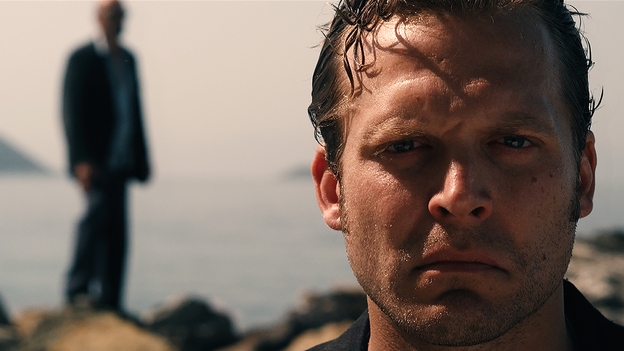
This short review appeared on The Upcoming website here as part of their coverage of the BFI London Film Festival.
Oxi: An Act of Resistance is
an essay film by Ken McMullen and it takes a unique and experimental view of
the economic turmoil in Greece.
The film strives to draw a parallel between Greece’s
economic problems and the tragedies of Sophocles and Aristophanes, suggesting
that Greece, and the EU in general, have departed from the values of the past
and that this is what has lead in the current crisis. The Greek classics
espoused democracy and a politics based on love and understanding rather than a
politics of economics and party lines, as shown by the democracy of Pericles,
which was, among other things, the original welfare state.
The film is interspersed with quotations
from Thucydides, which remain remarkably relevant for a text that is two and a
half thousand years old. The film opens with one quotation which claims that
human nature, being the way that it is, is always going to repeat itself –
indicating, first, the historical precedents for the inequalities of today and,
second, suggesting that these classics contain important lessons for today.
This point is made succinctly as the camera lingers on some ancient Greek
landscapes, suggesting a permanence between the past and the present. Several
interviewees argue for the return of the values of these ancient writings,
often passionately and with inspiration.
The film is at its best, then, as
an extended lesson in classical literature and its relevance today. But where
it is less successful is in its attempts to restage scenes from these plays,
updating them for a new audience. It becomes an exercise in performance, which
looks a lot more artificial and cerebral than the impassioned and moving
testimonies of real people. Worse still is the fictional element in which a
detective, Inspector Pinon (Dominique Pinon), horrified that anyone would dare
‘steal’ the words of Sophocles and Aristophanes and make them relevant for
today, castigates writers and actors. The point is that these classics are not
set in stone, but live and breath today, but the way the film attempts to
demonstrate this is both pretentious and somewhat contradictory.
The film works best as a dialogue between classic Greek
literature and the current problems in the world. The people interviewed call
for the return of the principles of the past and the film is a moving and
fascinating testament to what we have lost. But it often uses too much artifice
to tell a plain and simple truth.
No comments:
Post a Comment